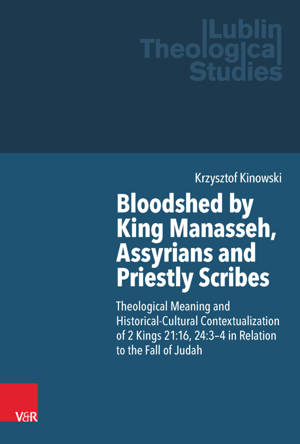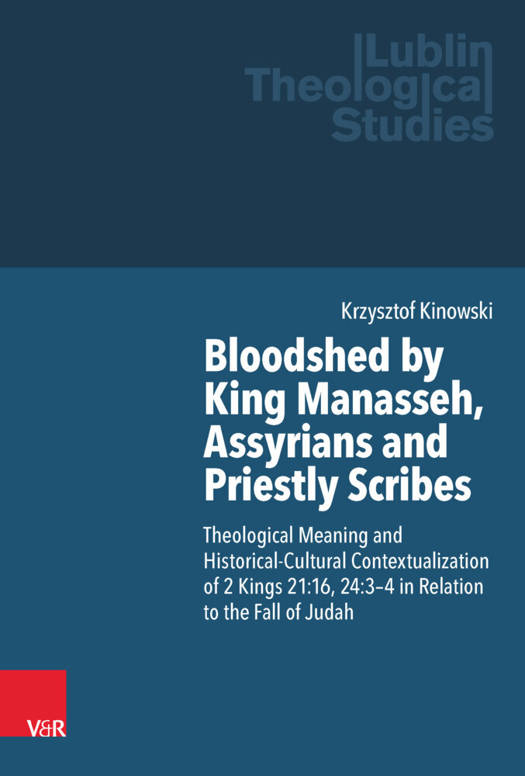
- Afhalen na 1 uur in een winkel met voorraad
- Gratis thuislevering in België vanaf € 30
- Ruim aanbod met 7 miljoen producten
- Afhalen na 1 uur in een winkel met voorraad
- Gratis thuislevering in België vanaf € 30
- Ruim aanbod met 7 miljoen producten
Zoeken
Bloodshed by King Manasseh, Assyrians and Priestly Scribes
Theological Meaning and Historical-Cultural Contextualization of 2 Kings 21:16, 24:3-4 in Relation to the Fall of Judah
Krzysztof Kinowski
€ 128,45
+ 256 punten
Omschrijving
King Manasseh of Judah is one of the most intriguing characters in the Bible. 2 Kings presents him as the wickedest of monarchs. In 2Kgs 24:3-4, he is accused of having provoked God to destroy Judah on account of the innocent blood he had shed in Jerusalem (cf. 2Kgs 21:16). In his study Krzysztof Kinowski investigates this accusation, viewing it against the biblical and ancient Near East backgrounds, and casts a new light upon Manasseh's role in the fall of Jerusalem. The mention of bloodshed in this affair appears to be the outcome of a process of scapegoating of Manasseh, ongoing in 2 Kings and reflecting both the legal and the cultic paradigms governing the biblical historiography. The link between Manasseh's bloodshed and the destruction of Judah on account of the cultic land's blood-defilement points towards a group of priestly scribes involved in the production of the 2Kgs 21 and 24 narratives. This assumption lies behind the scholarly discussion about the Priestly-like strata and priestly touches in the Books of Kings.
Specificaties
Betrokkenen
- Auteur(s):
- Uitgeverij:
Inhoud
- Aantal bladzijden:
- 374
- Taal:
- Engels
- Reeks:
- Reeksnummer:
- nr. 8
Eigenschappen
- Productcode (EAN):
- 9783525500439
- Verschijningsdatum:
- 22/01/2024
- Uitvoering:
- Hardcover
- Formaat:
- Genaaid
- Afmetingen:
- 155 mm x 231 mm
- Gewicht:
- 424986 g

Alleen bij Standaard Boekhandel
+ 256 punten op je klantenkaart van Standaard Boekhandel
Beoordelingen
We publiceren alleen reviews die voldoen aan de voorwaarden voor reviews. Bekijk onze voorwaarden voor reviews.











